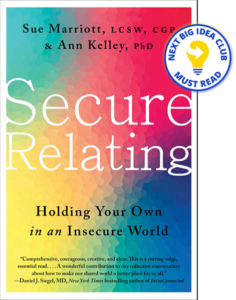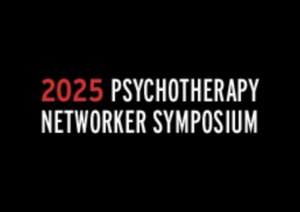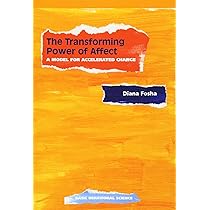Podcast: Play in new window | Download (Duration: 1:00:09 — 137.7MB)
Subscribe: Apple Podcasts | Spotify | Amazon Music
Let's talk about all things AEDP
Sue Marriott and Diana Fosha explore the key principles of Accelerated Experiential Dynamic Psychotherapy (AEDP) and its transformative impact on the field. AEDP begins with the premise of “healing from the get-go,” and fostering change from the first session. It emphasizes “undoing aloneness” by building a supportive therapeutic relationship, while encouraging clients to engage deeply with emotions. Join us as we highlight techniques like metatherapeutic processing, where clients reflect on their healing experience, and integrating neuroscience into clinical practice.
experience, and integrating neuroscience into clinical practice.
“The basic quality of emergent experience is a surrender to the experience of flow, of being in the zone.”
– Dr. Diana Fosha
Looking for extra community and connection post-election? Join us for our second free, live virtual holding circle on Friday, November 22nd at 3 PM CST – Click here to learn more
Time Stamps for AEDP
02:55 The importance of healing from the get-go
06:06 Understanding “Undoing aloneness”
28:34 Dropping down into the body and connecting with emotions
33:28 Explanation and application of Metatherapeutic processing
35:28 Creating a safe and transformative relationship with clients
51:20 The societal impact of AEDP
About our Guest – Dr. Diana Fosha
 Diana Fosha PhD is the developer of AEDPTM, a healing-oriented, radically relational experiential psychotherapy to transform trauma, heal attachment wounds and help people connect to their vitality. She is Founder and Director of the AEDP Institute. Her “heightened sensitivity to the promises of life” recognized, she has been also described as having “an extraordinary gift for hope.” For the last 20 years, Diana has been active in promoting a scientific basis for a healing-oriented, attachment-emotion- and transformation-focused trauma treatment model. Fosha's work focuses on integrating neuroplasticity, recognition science and developmental dyadic research into experiential and transformational clinical work with patients. Her most recent work, Undoing aloneness and the transformation of suffering into flourishing: AEDP 2.0, (APA, 2021), focuses on flourishing as a seamless part of the process of transforming emotional suffering. She is the author of The transforming power of affect: A model for accelerated change (Basic Books, 2000); co-author, with Natasha Prenn, of Supervision essentials for Accelerated Experiential Dynamic Psychotherapy (APA, 2016); 1st editor, with Daniel Siegel and Marion Solomon, of The healing power of emotion: Affective neuroscience, development & clinical practice (Norton, 2009), and editor of the soon to be released AEDP 2.0: Four DVDs of her live AEDP clinical work, including one documenting a complete 6-session treatment, and one on clinical supervision have been issued by the American Psychological Association (APA). Described by psychoanalyst James Grotstein as a “prizefighter of intimacy,” and by David Malan as “the Winnicott of [accelerated experiential] psychotherapy,” Diana Fosha’s writing style is powerful and precise, yet poetic and evocative. Her phrases —“undoing aloneness,” “existing in the heart and mind of the other,” “rigor without shame” and “True Other” — capture the ethos of AEDP.
Diana Fosha PhD is the developer of AEDPTM, a healing-oriented, radically relational experiential psychotherapy to transform trauma, heal attachment wounds and help people connect to their vitality. She is Founder and Director of the AEDP Institute. Her “heightened sensitivity to the promises of life” recognized, she has been also described as having “an extraordinary gift for hope.” For the last 20 years, Diana has been active in promoting a scientific basis for a healing-oriented, attachment-emotion- and transformation-focused trauma treatment model. Fosha's work focuses on integrating neuroplasticity, recognition science and developmental dyadic research into experiential and transformational clinical work with patients. Her most recent work, Undoing aloneness and the transformation of suffering into flourishing: AEDP 2.0, (APA, 2021), focuses on flourishing as a seamless part of the process of transforming emotional suffering. She is the author of The transforming power of affect: A model for accelerated change (Basic Books, 2000); co-author, with Natasha Prenn, of Supervision essentials for Accelerated Experiential Dynamic Psychotherapy (APA, 2016); 1st editor, with Daniel Siegel and Marion Solomon, of The healing power of emotion: Affective neuroscience, development & clinical practice (Norton, 2009), and editor of the soon to be released AEDP 2.0: Four DVDs of her live AEDP clinical work, including one documenting a complete 6-session treatment, and one on clinical supervision have been issued by the American Psychological Association (APA). Described by psychoanalyst James Grotstein as a “prizefighter of intimacy,” and by David Malan as “the Winnicott of [accelerated experiential] psychotherapy,” Diana Fosha’s writing style is powerful and precise, yet poetic and evocative. Her phrases —“undoing aloneness,” “existing in the heart and mind of the other,” “rigor without shame” and “True Other” — capture the ethos of AEDP.
Resources for AEDP
www.aedpinstitute.org – View some of Dr. Fosha's papers here
Metatherapeutic Processing Supports the Emergence of Flourishing in Psychotherapy – by Dr. Diana Fosha
How to be a Transformational Therapist – by Dr. Diana Fosha
Speculations on Emergence: Working the Edge of Transformational Experience and Neuroplasticity – by Dr. Diana Fosha
Healing Attachment Trauma with Attachment (& then some!) – by Dr. Diana Fosha
And of course, our book is also a great resource – it's for professionals and life-long learners of all kinds. If you've read it we'd love to hear from you and if you support it, PLEASE leave a review on either Amazon or Goodreads. Tk you!!

Get your copy of Secure Relating here!!
Events, Announcements & Resource Links for Secure Relating & the Election
Psychotherapy Networker Symposium – March 20-23, 2025
Rethinking Attachment – Using the Attachment Spectrum in Clinical Practice
Integrative Attachment Therapy Course Information
Therapists: THIS is our recommended class for the most comprehensive training on attachment out there. It just so happens it is also Dennings recommended program as discussed in this. episode! Use our link for a discount!
Trauma Therapy Directory – Resources for Trauma, PTSD, and Complex PTSD – Created by our friends at the Trauma Therapy Network!
Check out our other past and upcoming events here!!
Our Sponsors for this Episode –
![]()
Coffee alternative powered by mushrooms! Listeners get 20% off plus a free starter kit. Piquelife.com/tu

Our favorite skin quencher. Use the code TU when you checkout at oneskin.co















